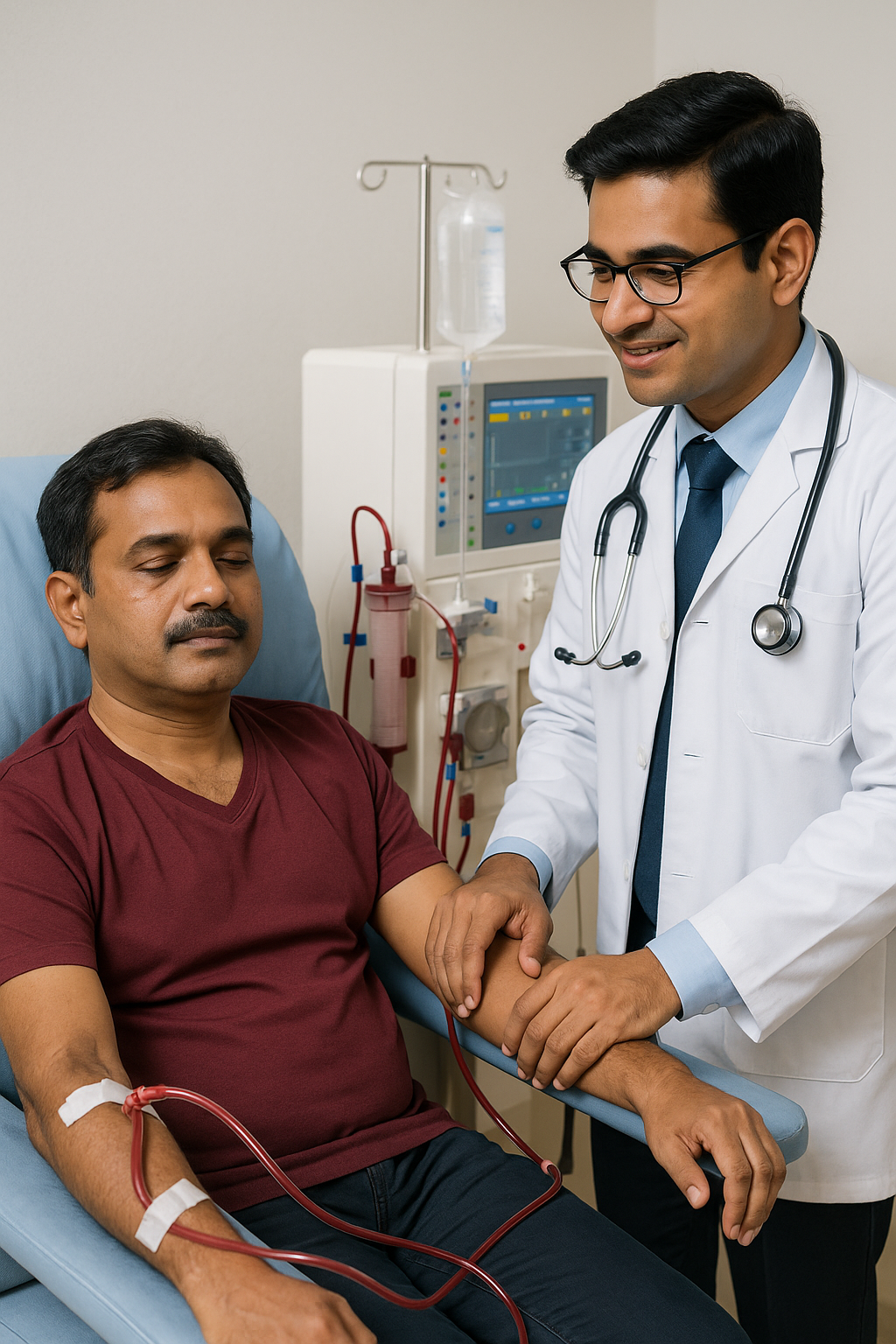- Compassion in every patient. Care in every moment.
What is Dialysis?
Dialysis is a life-sustaining treatment that removes waste products, extra salt, and excess fluid from the blood when the kidneys are not functioning adequately. It helps control blood pressure, maintain the body’s chemical balance, and supports overall wellbeing for patients with chronic kidney disease or acute kidney injury.

Advanced Renal Replacement Therapy
Dialysis
Our Dialysis Unit provides safe, comfortable, and evidence-based care using modern machines, strict infection control protocols, and continuous nephrologist supervision. We tailor treatment plans to each patient’s medical needs and lifestyle.
Services include hemodialysis, peritoneal dialysis training and support, emergency dialysis, and guidance on vascular access care (AV fistula, graft, or catheter). A dedicated nursing team and on-site diagnostics help ensure continuity of care.
Key Services
Haemodialysis (HD)
Peritoneal Dialysis (PD) Support
Emergency Dialysis
AV Fistula/Graft Care
Dialysis Catheter Care
Infection Control Protocols
Anaemia & Bone Health Management
Dietary & Fluid Counselling
Trusted Since 1978
FAQs
How can we help?
Could not find what you are looking for?
Request a Callback

